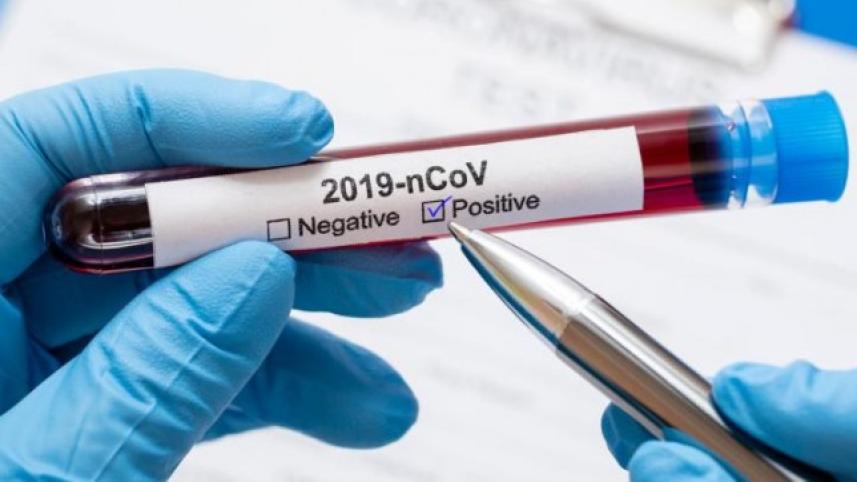Covid-19 Testing in Ctg: Contrasting results a cause for concern

A quizzical rate of positive results of Covid-19 test results at Chattogram Veterinary and Animal Sciences University (CVASU) has caused some alarm, after 53 out of 97 samples showed positive on Sunday, and 40 out of 61 samples showed positive on Thursday.
In stark contrast, at another testing facility in the port city -- Bangladesh Institute of Tropical and Infectious Diseases (BITID), 22 samples were tested positive out of 217 on Sunday, while 18 positive cases were detected out of 198 samples on Thursday.
The civil surgeon's office officially announced the results.
Health experts at BITID said there may be some weaknesses in the testing process at CVASU, since most of their lab technicians are not experts and there has been a previous case of mistake there as well.
CVASU, on the other hand, claimed that the percentage of positive cases were much higher as many samples were taken from Covid-19 positive patients for the second time and they who were undergoing treatment at hospitals.
Testing at BITID started on March 25, while CVASU started testing nearly a month later, on April 23. However, CVASU does not collect samples; BITID collects and sends those for test.
Chittagong Medical College also started Covid-19 testing from Saturday. Till Sunday, results of all nine samples tested there were negative.
WHAT AUTHORITIES SAY
Dr Hasan Shahriar Kabir, Chattogram divisional director of Directorate General of Health Services, said Thursday's results were declared on Friday after collecting details of patients. "There is no scope for controversy or confusion over the result," he told The Daily Star.
Asked about the high percentage of positive cases, he said most Covid-19 positive patients were undergoing treatment in hospitals with symptoms of fever and coughing. "The more you collect samples from symptomatic patients, the more the result will likely be positive," he said.
Contacted, Chattogram Civil Surgeon Dr Sheikh Fazle Rabbi said they too were surprised to see the results. "We declared the results after verifying it," he added.
'A MATTER OF WORRY'
Prof Dr Shakeel Ahmed, in-charge of the BITID laboratory, said, "When I came to know about the Thursday's results [at CVASU], I was surprised and worried."
This is not the first time that samples from CVASU raised questions, he said.
Prof Shakeel said around a week ago, they found some anomalies in results while re-testing those. He did not elaborate any further.
He also informed that the lab technicians at CVASU were trained by them. "Usually, students perform the tests there, and they are working amid pressure. So there is some weakness there, which may affect quality," he told this newspaper.
"They never had to deal with patients before… but when an issue arose over test results around a week ago, we pointed those out and instructed them on how to get accurate results," he added.
Prof Shakeel also mentioned that testing of Covid-19 started at CVASU to take some pressure off BITID. "If we have to recheck their samples, then it will create more hassle for us," he said.
WHAT CVASU SAYS
Dr Zunaed Siddiki, a professor of pathology and in-charge of laboratory at CVASU, said they believed there was no weakness in their testing process.
"We have learnt from the experts at BITID; if they say that there is weakness in our testing process, that's unfortunate," he said.
Asked about the high percentage of positive cases, Dr Siddiki said, "At first we were surprised. But we were told that many samples were from already detected Covid-19 patients."
Dr Siddiki, however, said there is no microbiologist in their laboratory. "Our students of pathology and students of microbiology and genetic engineering departments of Chittagong University, who received training from BITID, volunteer in the lab," he added.
About CVASU's claim that many samples were from Covid-19 positive patients, Prof Shakeel of BITID said the number of positive samples send for re-testing is hardly 15-20 percent.
ANOMALIES IN BITID REPORT TOO
Meanwhile, allegations over lack of coordination in the BITID laboratory ran rife, after a result sheet signed by Prof Shakeel Ahmed on May 6 wrongly mentioned the date of collection and testing of samples.
The result showed 12 positive cases while all the samples were shown to be collected on April 30; they mentioned that the result sheet was prepared on May 4 and the tests were performed on May 5 and May 6.
However, many family members of victims claimed that the samples were collected much later.
For example, family of Abdul Halim (56), who died on May 5, alleged that samples of the patient were collected after his death.
Asked, Prof Shakeel said it was a "typing mistake" on the top-sheet but the date of collection and testing was rightly mentioned in the pages inside.
"We are performing tests and writing reports as well. We have never done any clerical work before, hence there was an error," he said.
Asked, Civil Surgeon Dr Rabbi said the BITID authorities apologised for their mistake. "The mistake was only on the first page; the rest was accurate," he assured.




 For all latest news, follow The Daily Star's Google News channel.
For all latest news, follow The Daily Star's Google News channel.
Comments